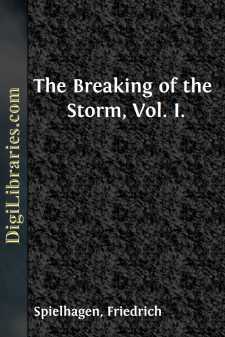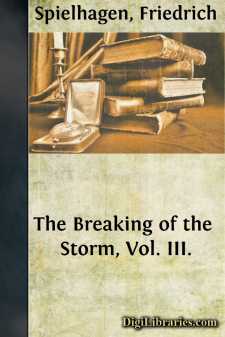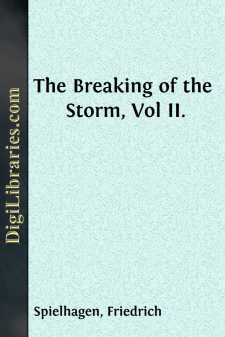Categories
- Antiques & Collectibles 13
- Architecture 36
- Art 48
- Bibles 22
- Biography & Autobiography 813
- Body, Mind & Spirit 142
- Business & Economics 28
- Children's Books 17
- Children's Fiction 14
- Computers 4
- Cooking 94
- Crafts & Hobbies 4
- Drama 346
- Education 46
- Family & Relationships 57
- Fiction 11829
- Games 19
- Gardening 17
- Health & Fitness 34
- History 1377
- House & Home 1
- Humor 147
- Juvenile Fiction 1873
- Juvenile Nonfiction 202
- Language Arts & Disciplines 88
- Law 16
- Literary Collections 686
- Literary Criticism 179
- Mathematics 13
- Medical 41
- Music 40
- Nature 179
- Non-Classifiable 1768
- Performing Arts 7
- Periodicals 1453
- Philosophy 64
- Photography 2
- Poetry 896
- Political Science 203
- Psychology 42
- Reference 154
- Religion 513
- Science 126
- Self-Help 84
- Social Science 81
- Sports & Recreation 34
- Study Aids 3
- Technology & Engineering 59
- Transportation 23
- Travel 463
- True Crime 29
The Breaking of the Storm, Vol. I.
Description:
Excerpt
I.
OPTIMISM
Innumerable writers at the end of the nineteenth century have reviewed the changes which in the last fifty years have come over the civilised world. The record indeed is admitted on all hands to be marvellous. Steam, electricity, machinery, and all the practical inventions of applied science have added enormously to the material wealth, comfort, and luxury of mankind. Intellectually, the bounds of pure science have been vastly enlarged; and the blessings of education have been extended to the poorest members of the community. Philanthropic and religious activity manifests itself in a thousand different organisations. We are never tired of repeating, that changes which in the first half of the century would have been pronounced impossible and incredible, at the end of the century are accomplished facts.
But amongst all these changes one is almost universally overlooked, and that the most characteristic, the most remarkable, and the most important: the face of civilisation has come to be illumined by hope. Great as is the progress of the last fifty years, we count it as nothing compared with that which is in store for us. To the discoveries of science it is felt that no bounds can be set; what a day may bring forth in the way of the extension of man's control over the forces of Nature, what secrets of Nature the chemist in his laboratory may light upon at any moment, no man can surmise, but everyone is confident that things will be discovered as marvellous to us now as the telegraph and telephone to our predecessors of the pre-scientific age. In the treatment of political and social questions the same deep-seated conviction prevails that progress can and will be made: the conditions and causes of poverty can be ascertained by patient study, and when ascertained can be dealt with. The laws of physical health and cleanliness have not refused to reveal themselves, nor are moral health and cleanliness without their laws. In fine, if the best energy of the age is everywhere devoted to the increase of knowledge, the advancement of morality, and the diffusion of comfort, it is because everywhere there is hope. In the social as in the individual organism hope raises the tide of life, increases vitality, and stimulates the system. Hence this general discharge throughout the nervous system of society, manifesting itself in the vigour and energy with which all schemes for improvement are taken up and carried out. That discoveries will be made and progress effected is as certain as that gold is to be found in a goldfield; the only practical question is, By whom? Who is to be the lucky man?
To us who have witnessed the advance which has given rise to this universal hope, the hope itself seems so reasonable and so justifiable that we are apt to overlook the fact that it is without parallel in the history of mankind. Never, of course, has any generation of men imagined its own lot perfect; all have had their ideals, and all have believed their ideals to be true. But whereas we place the realisation of our ideals in the future, all previous generations have placed it in the past: the Golden Age till now has always been regarded as the starting-point of man's history, not its goal....








